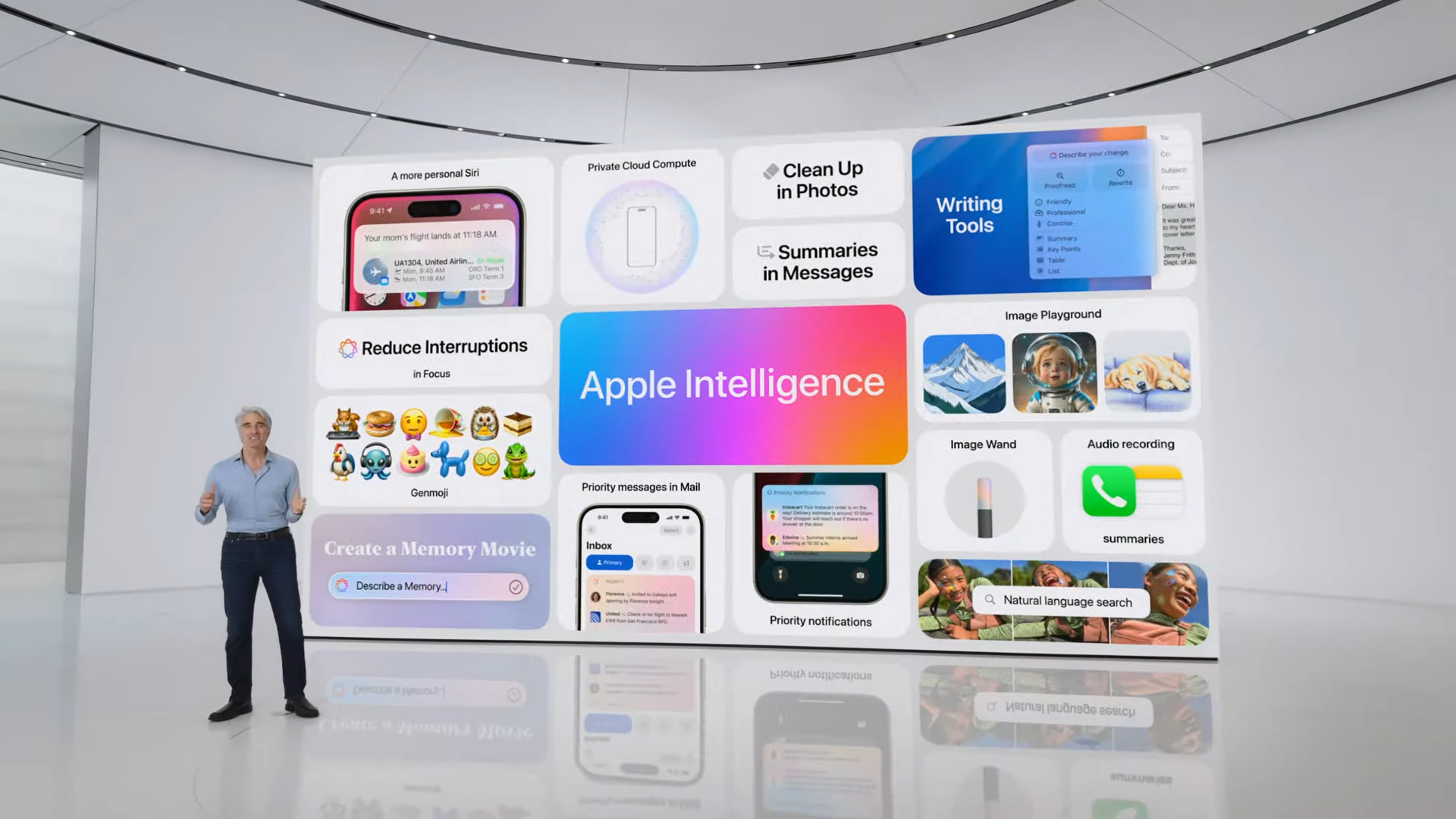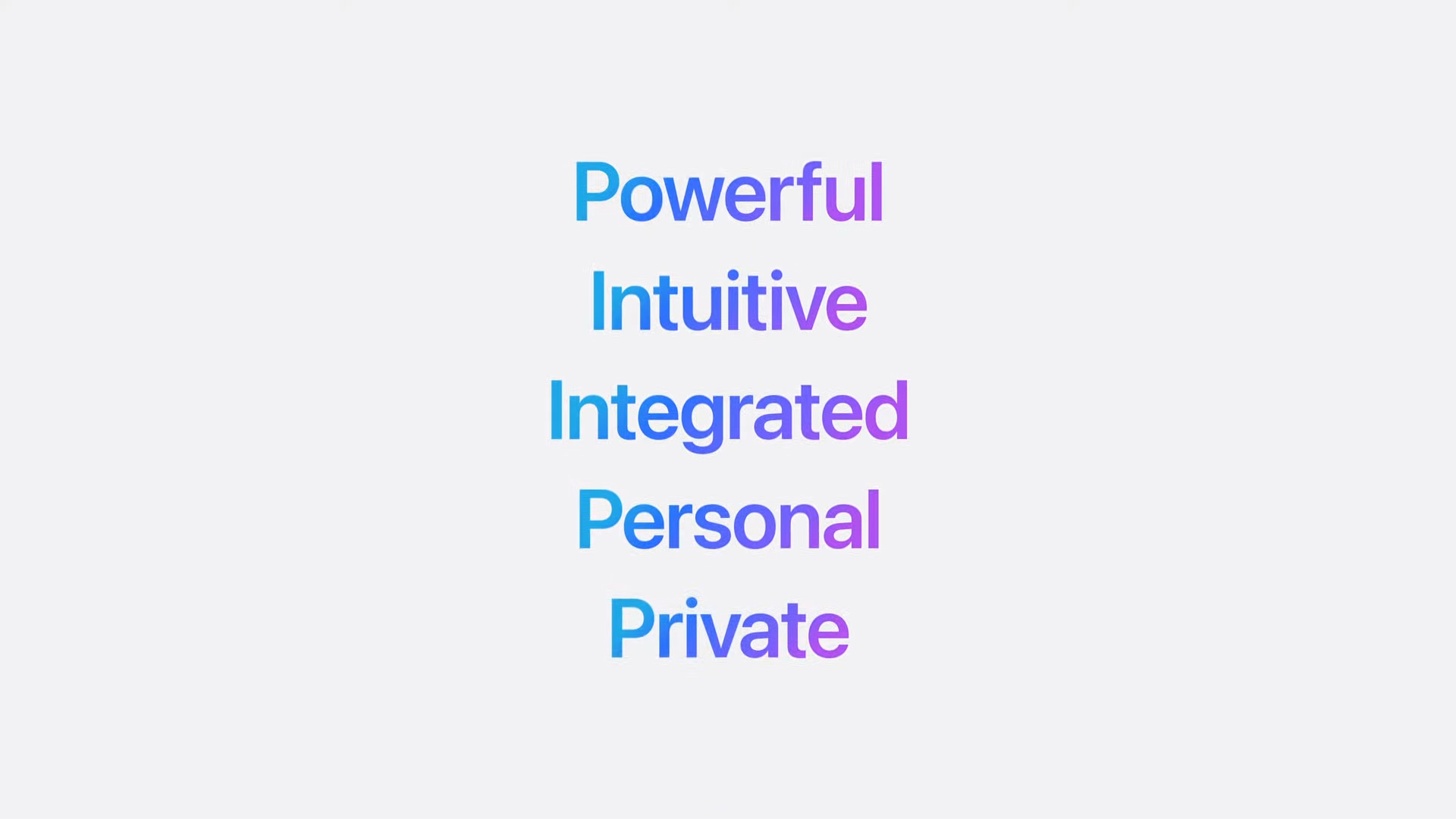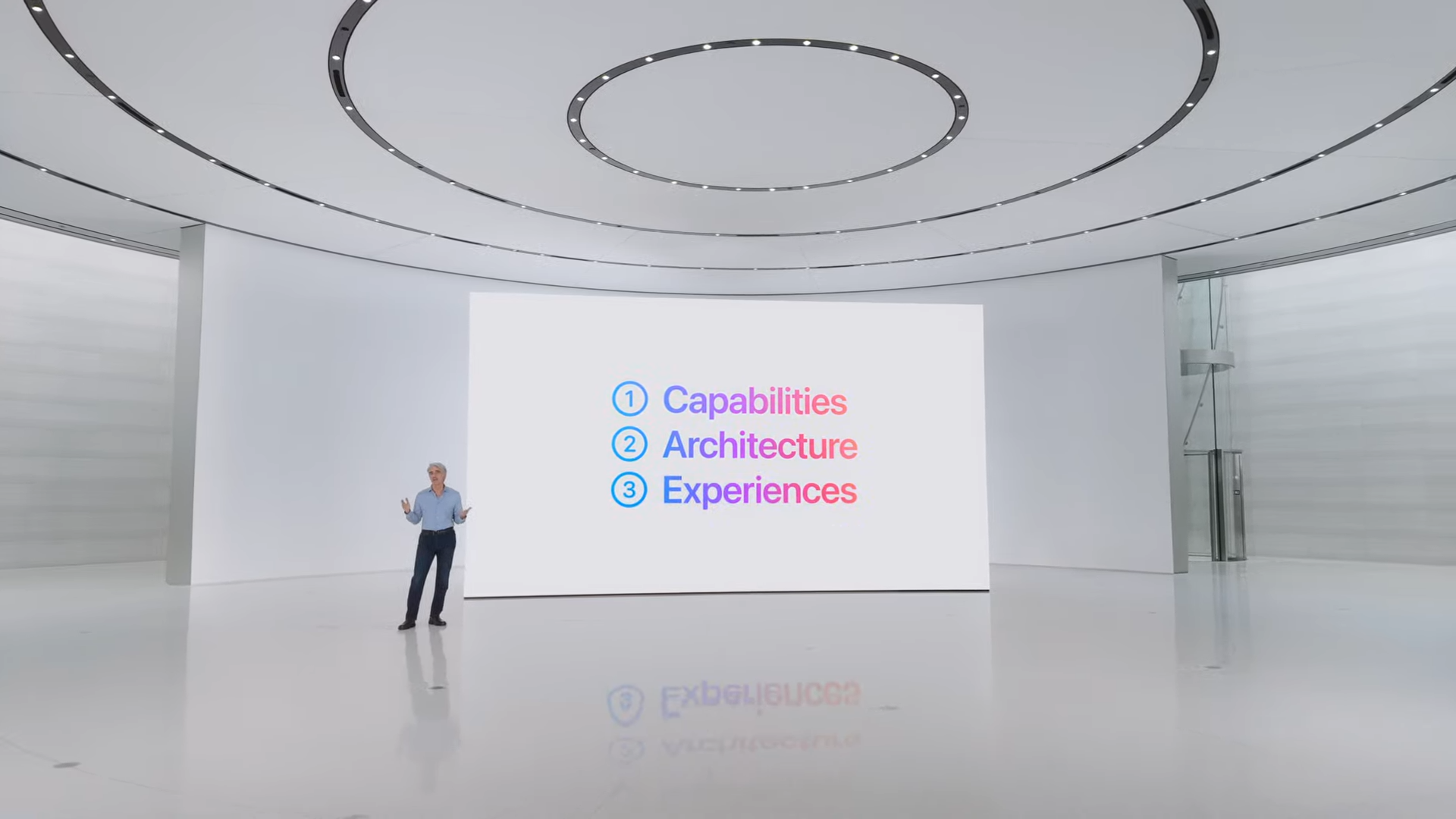
One of the big concerns with using Large Language Model (LLM) AI comes down to security. Using LLMs on the Cloud often involves putting your sensitive data onto a cloud server where it can be collected and used without your knowledge or permission. This has been one of the major concerns over Microsoft's Recall feature coming with Copilot+ in the next few weeks.
Apple finally confirmed its AI plans during the WWDC 2024 keynote on Monday. Apple Intelligence is the company's version of AI, which comes with many of the same features as other AI programs like generative text, images, customizable AI emojis, text and email summaries, and even the ability to leverage your personal information to generate the best responses.
While Apple Intelligence mostly functions on-device, it can query cloud LLM models for increased computing power. During the WWDC keynote, Apple's Senior Vice President of Software Engineering, Craig Federighi confirmed, "You should not have to hand over all the details of your life to be warehoused and analyzed in someone's AI cloud. With Apple Intelligence, powerful intelligence goes hand in hand with powerful privacy."
So while Apple is leaning heavily into on-device AI for security, your data can still end up on an Apple AI cloud.
Apple Intelligence queries the cloud, but doesn't store data
Apple stated that, while Apple Intelligence could send some of your data to their AI cloud, your data will not be available to the company. Instead, Apple Intelligence will determine if your query can be handled on the device, and if not it sends only the necessary information to the Private Cloud Compute servers. These servers are running on Apple Silicon controlled by Apple and independently reviewed.
As Federighi noted, "Your data is never stored or made accessible to Apple, it's used exclusively to fulfill your request, and just like your iPhone, independent experts can inspect the code that runs on these servers to verify this privacy promise."
Apple has pushed its privacy and security as an advantage for years now and this is a common concern with AI, but is this enough?

Is Apple Intelligence the same as Microsoft Recall?
Apple's description of how Apple Intelligence works does feel safer than Microsoft's debut of Recall. But that could just be better marketing. After all, Apple is well known for making people feel comfortable with technological advances by couching it in different terms. The company frequently refers to Artificial Intelligence as "Machine Learning" and even strayed away from Augmented Reality (AR) by calling the Apple Vision Pro a "Spatial Computing" device.
One of the main things that concerned Windows enthusiasts about Microsoft Copilot+'s Recall features was the constant snapshots the AI would take of any device. After all, even if those snapshots are never uploaded to the cloud by Microsoft, malicious users who gain access to your PC could in theory obtain them. The way Apple has positioned the Apple Intelligence features seems to skirt around the idea that the AI is constantly screenshotting your devices.
Opening the WWDC keynote section on Apple Intelligence, Apple CEO Tim Cook iterated all of the things the company desired from any AI integration, "It has to be powerful enough to help with the things that matter most to you. It has to be intuitive and easy to use. It has to be deeply integrated into your product experiences. Most importantly, it has to understand you and be grounded in your personal context, like your routine, your relationships, your communications and more."
If Apple Intelligence needs to understand you and be grounded in your personal context, then it needs to record or snapshot your device. Apple's implementation could be much more secure, but regardless, the information has to be stored for your Mac, iPad, or iPhone to benefit from it and share it across your devices. It's hard to see this as a night and day difference from the issue that caused Microsoft to announce changes to its Recall feature just hours before the Apple keynote.

What should Apple Intelligence learn from Recall?
Microsoft has already detailed the changes to Recall that will be in effect before the system goes to launch.
- Windows Recall will now require a user to opt-in to the service, meaning the service will be disabled by default.
- Recall will now require Windows Hello to be active to use the feature. Windows Hello will be used to provide proof of presence for users to view and search through saved timelines.
- Windows Hello enhanced sign-in security (ESS) will also be used to bypass "just in time" decryption of snapshots and the search index database, to further ensure that Recall snapshots are only accessible when the user provides authentication.
Apple could easily add all of these features to Apple Intelligence, which would help give users peace of mind. After all, Apple has integrated FaceID into all of its product line which could replace Windows Hello.
Apple does still have time before Apple Intelligence goes to launch. While the feature will be available in beta over the summer, it won't roll out fully to users until iOS 18, iPadOS 18, and macOS 15 are released this fall.







